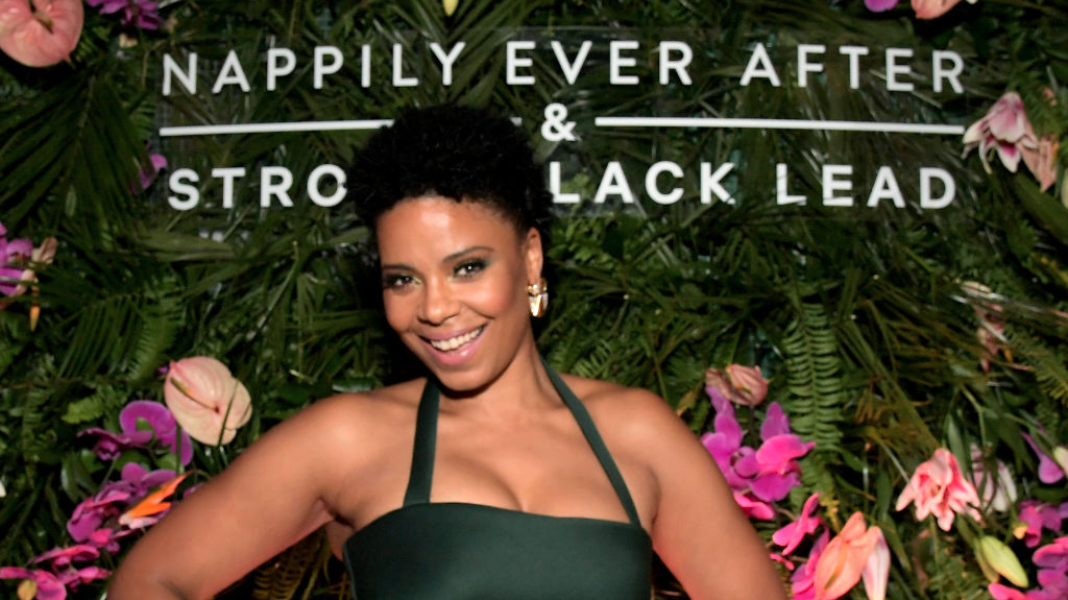
LOS ANGELES, CA – SEPTEMBER 20: Sanaa Lathan attends the afterparty for a screening of Netlfix’s “Nappily Ever After” at Teddy’s on September 20, 2018 in Los Angeles, California. (Photo by Charley Gallay/Getty Images for Netflix)
I was excited about the release of Nappily Ever After. I’m generally here for a romantic comedy and one that features a Black woman dealing with hair and the value of beauty, is a story many of us know or have experienced first-hand. And I thought the movie was cute. It’s reminiscent of a film we’ve seen before but I was generally entertained.
I watched it and moved on, with no strong takeaways. But then my sister showed me this tweet that put a new spin on the entire film.
https://twitter.com/miss_shrleen/status/1043326459371311104
Mind. Blown.
I was under the impression that Sanaa Lathan’s character chose herself at the end of the day and was going to remain single. But my sister and a couple of other women who watched the film felt that it was implied and understood that Sanaa and the shop owner would end up together. If that’s the case, it followed a theme of Black women choosing a man who has less to contribute financially.
This woman ain’t never lied. If you think about many of Black romantic comedies—they feature women who ultimately end up with a man who doesn’t make anywhere near the amount of money she makes. And this fact is celebrated. She’s chosen well by marrying down. If women of a certain standard could only lower their standards a bit, they can find true love. If you need a couple of examples, there’s Something New, also featuring Sanaa Lathan–complete with the natural hair journey.
Daddy’s Little Girls
Deliver Us From Eva
Diary of Mad Black Woman* (I’ll include an asterisk on this one because her rich husband was actually emotionally abusive.)
Think Like A Man
But you see the pattern. Get you a broke man and you’ll live happily ever after. Romantic comedies are generally cliche. So many tropes are recycled. But this narrative ends up playing out in real life, with real conversations. Black women who’ve achieved a certain level of career success are often encouraged to date down, when it comes to finances and salary. But the conversation rarely goes the other way, Black men are not encouraged to step their game up and achieve more to be compatible with these high achieving, money making, business-owning, degree earning, Black women.
And Black women who desire or even require a man to make a certain amount of money, are called gold diggers. But really, what is wrong with wanting a man who is on your same level? These rom-coms rarely, if ever, address what happens after you get the man with no money. They don’t discuss the fragility of the male ego and how that might present a problem when a woman makes more money in the relationship. They don’t discuss that challenges and resentment that might arise when a woman has to take on the financial burden of another adult.
I don’t want to make a blanket statement about White women and the way they were raised. But I’ve seen more than a few examples of White women being encouraged to date and ultimately partner with men who have something to offer financially–and by something, I mean equal to or more than what I currently make.
When financial adviser Suze Orman sat down with “The Breakfast Club” crew, she told them straight up that women shouldn’t even date a man (or woman) without a credit score of 720. It’s a very clear standard about money but she said it also spoke to a responsible and mature mindset when it comes to money. This is crucial. We all know that money is not everything, it has the ability to affect the quality of our lives. And you want to know that you’re linking with someone who knows how to not only make it but handle it.
I think these types of conversations are actually healthy. It’s unfortunate that Black women are always the ones asked and even expected to settle when Black men never have to do the same. They ask and expect women to cook, look good, make money and be there for him physically and emotionally. She’s supposed to bring something to the table. But when we ask Black men to do the same with comparable achievements and financial contributions, it’s too much.
![]()









